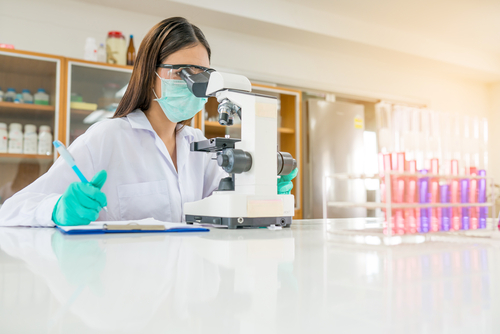Target ALS Launches $15M Effort to Find Biomarkers, Expand Resources for ALS Research

Target ALS is launching an expansive $15 million research initiative aimed at discovering biomarkers and developing new scientific resources for amyotrophic lateral sclerosis (ALS).
The Target ALS Diagnosis Initiative, touted as the first of its kind, will create grants and scientific resources to identify needed biomarkers. Such indicators allow doctors to readily distinguish people with ALS from those who don’t have the disease. They also can help evaluate ALS progression, and provide reliable measures for new therapies.
In addition to seeking biomarker discovery and development, the initiative will establish a five-year natural history study and develop an integrated Biosamples and Genomics Core that will be accessible to researchers globally. That resource is expected to improve the impact of human biological samples — including cerebral spinal fluid, blood and urine — on ALS research.
The Target ALS effort was developed after input from more than 100 scientists, patients, caregivers, and other stakeholders.
“This is a major milestone for Target ALS, as we’ve proven our ability to respond to the needs of the scientific community in ways that accelerate their work like never before,” Manish Raisinghani, PhD, Target ALS CEO, said in a press release.
“We are now increasing this commitment significantly, with The Target ALS Diagnosis Initiative, in order to advance ALS biomarker research,” Raisinghani added. “It’s been gratifying for our team to support scientists over the last seven years and know that we are spearheading access to essential resources that can help them realize life-changing benefits for people with ALS.”
A working group of some 30 representatives from pharmaceutical, academic, and nonprofit foundations will collaborate on fresh approaches to finding, validating, and developing potential ALS biomarkers. This pre-competitive research builds upon work begun in 2017, when Target ALS funded multiple biomarker projects the group recommended.
As for competitive research, results of a first-ever Target ALS request for grant proposals focused on biomarkers will be announced this month. Funding eligibility requirements included collaboration between academic researchers and the pharmaceutical/biotechnology industry. The effort expounds on a partnership established last fall with The Association for Frontotemporal Degeneration to invest $5 million in biomarker discovery study.
Meanwhile, the lack of quick and easy access to longitudinal fluid samples has, over the years, hindered many scientists. Such samples, donated by patients over the course of their disease, provide insights into disease progression.
The initiative seeks to remedy that by making samples and data from its planned natural history study available to researchers worldwide. The study will seek to integrate: the collection of biofluids; clinical speech, language, and respiratory measures; and demographic data from some 200 ALS patients and 80 patients who do not have the neurodegenerative disease.
The Biosamples and Genomics Core the initiative will establish is an extension of the tools and resources Target ALS already offers researchers through six scientific core facilities — postmortem tissue, human genomic datasets, human-derived stem cells, animal models, and antibodies and viral vectors.
The new core will increase the impact of biosamples and data available through the postmortem tissue and genomic cores by linking them to the longitudinal ALS biofluid samples from the natural history study. Before, the collection of longitudinal biofluids and postmortem tissue, in addition to the generation of genomic datasets, were largely part of standalone efforts.
The core is supported by existing alliances with the ALS Association, the Tow Foundation and the New York Genome Center.






